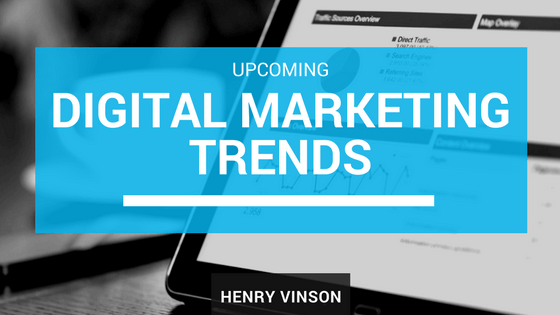Digital marketing trends stand to make a splash in 2018. As technology continues to dominate the advertising world, marketing professionals are ever-more ready to veer from the conventions of traditional marketing and turn towards trendy new solutions. Last year, a few choice marketing trends emerged as potentially revolutionary players in marketing strategy; here, I outline three I believe professionals should implement in their digital marketing efforts.
Voice Search Optimization
Without question, optimizing a client’s online content for voice search should be at the top of your marketing to-do list. By the middle of the year, Google’s search algorithm is predicted to explicitly favor websites that are designed with a voice-first approach.
At the most basic level, voice search has picked up steam through the immense usage of mobile devices. Pages and data on your website should be broken into segments the length of the average voice search. It’s also important to understand the way a client company can best enjoy the benefits of voice search optimization. After all, a local service business will follow a different set of optimization guidelines than an e-commerce vendor.
Thought Leadership
The end is nowhere in sight for the rise of social media. Social media has become more of a necessity than a trend, and nearly every business today understands the importance of building an online brand. However, with so many companies marketing across social platform, it’s also becoming much harder to stand apart from the crowd.
Thought leaders (sometimes referred to as influencers) can help companies gain much-needed visibility. The social media accounts of a given industry’s leaders are a gold mine for raising brand awareness. Though most thought leaders will charge for promoting your brand, their efforts will generate more value for a client’s company than a standard PPC campaign.
Personalizing the User Experience
Establishing trust with customers has always been an important part of marketing, and new technology promotes some interesting trust-building tools. Dynamically generated user interfaces, for example, can bring potential customers closer to your brand even before they know what you’re selling.
UI personalization is part of a bigger movement digital marketing is making towards artificial intelligence. Based on individual search history, a user can access a special version of your website’s landing page tailored on an individual basis. It’s also possible to track the performance of various user types. Most importantly, this is just a single example of where artificial intelligence might bring marketing in the future.
There’s a lot to plan for your company’s 2018 marketing plan, but capitalizing on these upcoming trends is a good start. Learning to access artificial intelligence will likely be the basis of important trends for years to come.

